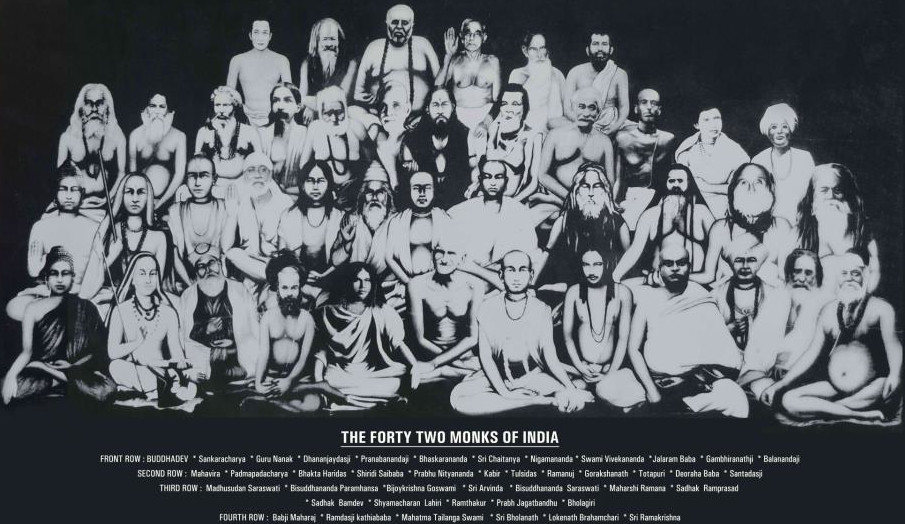I am an atheist. I don’t belive in organised religions. The idea of a three or four dimensional omnipresent and omnipotent supreme entity is too simplistic. I scoff at the belief that this diety can (and wants to) meddle with the day to day activities of every human being through a punishment and reward system. The view that one can please the said diety with self-damaging promises, materialistic offerings and other sacrifices is mindlessness. However… I am intrigued by spirituality and spirtual experiences.
Why?
-
Growing up in India in Hindu culture, I heard stories of meditation (tapas, thavam), salvation, eternal bliss, inner peace, wisdom, stories of Buddha. etc. etc. I have a better understanding of Indian mysticism & philosophy through literature, language and culture that gives me a perspective which a rational atheist may fail to grok. There is a picture in one of the ashrams of Uttrakhand that lists 42 monks of India (It includes Buddha, Mahavira and Guru Nanak who were the founding fathers of Buddhism, Jainism and Sikhism respectively).
The monks in the list have a very high bar that I doubt any of them had ulterior motives. What makes them special? What did they experience? What are their teachings? What is similar, what is different? My fasciation towards this subject is similar to a historian’s fasciation towards anything historical.

-
Spirituality is one of the many ways to control one’s mind, to be at peace with oneself and to maximise one’s potential. I firmly believe this.
Spirituality
The Oxford Dictionary of the Christian Church probably has the most detailed definition of what spirituality is:
“A vague term now used to refer both to people’s subjective practice and experience of their religion, and to the spiritual exercises and beliefs which individuals have regarding their personal relationship with God. It is usual to regard prayer, meditation, contemplation, and mysticism as major factors in spirituality.”
Though the definition is from the Christian point of view (“spiritual exercises” is a term strongly associated with Christianity through the title of a religious book), it at least establishes that ‘spirituality’ is a vague term. Every person has their own definition depending on their belief system and how religious that person is.
My definition
Humans haven’t frankenstiened life yet (colloquially called “playing God”). This life/soul/spirit/consciousness is very much mystical. The exploration of this idea, this question (what is awareness? what is life? why is life? who am I?) through both rational and metaphysical ways is spirituality to me.
“Spirituality is a personal exploration of one’s inner self, to seek a deeper understanding of one’s place and purpose in the universe. It is a continuous process of learning, questioning and transformation.”
My “spiritual exercises” include meditation, mindfulness, connecting with nature, and studying spiritual texts. I don’t always have the time but I do comtemplate now and then on Upanishads, Gita, Dammapada and practice meditation or a self-reflective walk through the woods.
Does it make me less of an atheist?
On a scale of 1 to 7 where 1 is theist and 7 is an atheist, I am a 5. For reference, world’s famous atheist Richard Dawkins claimed he was a 6. My point of view on spirituality does not change the facts that
- I don’t believe in any God.
- I don’t have a personal God (nature is nature, universe is universe).
- I don’t worship or negotiate favours with any entity.
- I won’t be offended if anyone contradicts my point of view on spirituality.